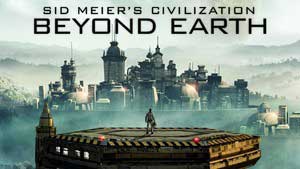

From the original to V, through spin-offs in space and the 16th century, I have always played Civ games for as long as they were the most recent, as long as that ended up being the case.

Buy sid meiers civilization beyond earth full#
I also think it’s a wonderful strategy game, full of depth and nuance, oozing with character and a modern standard-bearer for the series’ classic “one more turn” addiction.īut it’s also the first Civilisation game that I have ever stopped playing. That’s a deeply relative thing, of course. Let me be blunt: in 2023 I think it’s the worst mainline Civilisation game. But while Civilisation V received two expansions that helped cement its legacy as one of the best strategy games ever made, Civilisation VI hasn’t hit quite the same heights. That’s exactly what happened, and when it did I had some more kind words to say.

I knew from my Civilisation V experience that these games no longer released whole, and that it would like take an expansion or two for the full grandeur of Firaxis’ planned experience to take shape. I was kind to Civilisation VI at launch, with some predictable caveats. Which leads us to the subject of today’s re-review: Sid Meier’s Civilisation VI, a video game released back in 2016 and which has been updated - though not necessarily improved - since. I also wrote one in 2016 for Sid Meier’s Civilisation V, a game first released in 2010. In an attempt to atone for my critical sins I’ve spent the last few years re-reviewing some of the biggest, grandest strategy games on the PC, from Crusader Kings to Hearts of Iron, weighing their expansions and updates and shifting mechanics against the games we were able to play at release. Of course while timely reviews can be a problem in this instance, they can also be the solution. They’re useful and correct for the time, it’s just that as strategy games evolve and bed themselves in over months and years, those day-one thoughts can become increasingly irrelevant. And it’s not to say those initial reviews are worthless, far from it. It’s a structural, inherent flaw in reviewing video games at launch, and while strategy games are far from the only genre vulnerable to this (MMO players, I see you), it’s the one I specialise in, so it’s the one I’m taking responsibility for here. By the time I was writing my Company of Heroes 3 review, I had downgraded my opinion on its predecessor to “dogshit”. I n my Company of Heroes 2 review, for example, I end by calling the game an “overwhelming success”. What the hell am I writing about, then, when I sit down to review one of these games? How can I hope to definitively give my verdict on an experience if the future has the power to change - or even undermine - the way people ultimately end up playing it?Īllow me to confess: I have said some strategy games are great in a review on this website, only to find that over the months and years to follow - through updates, or changes to systems that only break after hundreds of hours of use - that I don’t actually like them that much. Fans will clock up thousands of hours on the battlefield or world map, developers will release countless patches and updates and expansions and the experience of playing something like Crusader Kings might change dramatically in the weeks, months and years after release. But every time I sit down to review one, I’m plagued with doubts and uncertainties.īig strategy games are often played (continually, I mean) well beyond the lifespans of many other genres. A lot of my reviews for Kotaku end up being for big strategy games because that’s my passion, and they’re games I’ve poured decades of my life into playing. I think about this a lot when it comes to video game reviews. It’s impossible for us to say what the future’s history will or will not be kind to, just as it would have been impossible for people 50 or 500 years ago to imagine what inseparable part of the fabric of their daily lives we would find indispensable (or unpalatable) in the 21st century. All we can do in the present, as historians or otherwise, is evaluate what has come before us. Who are we to judge the future’s thoughts on the topics of today? That’s the future’s problem. Saying “history will not be kind to ” is a practice that has always fascinated me.


 0 kommentar(er)
0 kommentar(er)
